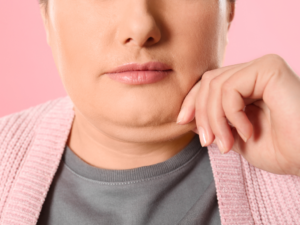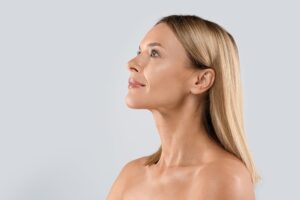What is Buccal Fat?
If you’re bothered by overly full or rounded cheeks, buccal fat removal may help create a slimmer, more sculpted facial appearance. This precise surgical procedure reduces the fat pad in the mid to lower cheek to enhance contour and highlight the cheekbones’ natural angles. For the right patient, it can bring balance to facial proportions and deliver long-lasting, natural-looking results—especially when performed by a skilled facial plastic surgeon like Dr. Mark Beaty.
- What Is Buccal Fat?
- Buccal Fat Removal Benefits
- Choosing the Right Surgeon
- Buccal Fat Removal Before-and-After Photos
- Buccal Fat Removal Candidates
- Buccal Fat Removal Procedure
- Buccal Fat Removal Recovery
- Buccal Fat Removal Risks
- Is Buccal Fat Removal Painful?
- Buccal Fat Removal Result Longevity
- Buccal Fat Removal Alternatives
- Combining Buccal Fat Removal with Other Procedures
- Additional Buccal Fat Removal FAQs
What Is Buccal Fat?
Buccal fat is the fat pad which provides fullness to the soft, flexible part of the cheek beneath the cheekbone. This fat pad is distinct from the one that shapes the midface, which sits higher and more superficially over the cheekbone.
What Are the Benefits of Buccal Fat Removal?
Removal of buccal fat creates a subtle hollowing of the lower cheek, which can accentuate the cheekbones and give a more dramatic appearance to the face. In patients with round, full faces, removal of buccal fat can help create a more feminine, heart-shaped face. The procedure can enhance facial definition, improve contour, and provide a more sculpted, balanced look—often with no visible scarring, since the incisions are made inside the mouth. For the right patient, the results are both natural and permanent. Unlike superficial fat pads, buccal fat pads are unique in that they contain a high stem cell content and maintain their volume over time. Rather than shrinking with age, they can actually become larger as patients get older.
How Can I Choose the Right Surgeon for Buccal Fat Removal?
Any plastic surgery procedure isn’t something to take lightly—and buccal fat removal is no exception. This isn’t the place to elevate price over experience. You should only trust a procedure that alters the shape of your face to a highly qualified and experienced facial plastic surgeon.
Dr. Mark Beaty is a double board-certified facial plastic surgeon who specializes in cosmetic and reconstructive surgery of the face and neck. That’s the kind of training, expertise, and attention to detail you want when making a change that will impact your facial appearance for the rest of your life.
During your consultation, Dr. Beaty will evaluate whether buccal fat removal is the right procedure for your features, goals, and long-term outlook. While fuller cheeks may be a concern now, it’s important to consider how the face changes with age. Over time, collagen production decreases and facial fat naturally diminishes, especially in the cheeks. Many patients in their 50s and 60s seek volume restoration with dermal fillers for this very reason. If you remove too much fat too early, the face can take on a hollow or gaunt look as you age. These are the kinds of pros and cons you’ll thoughtfully discuss together to make the most informed decision.
Buccal Fat Removal Before-and-After Photos
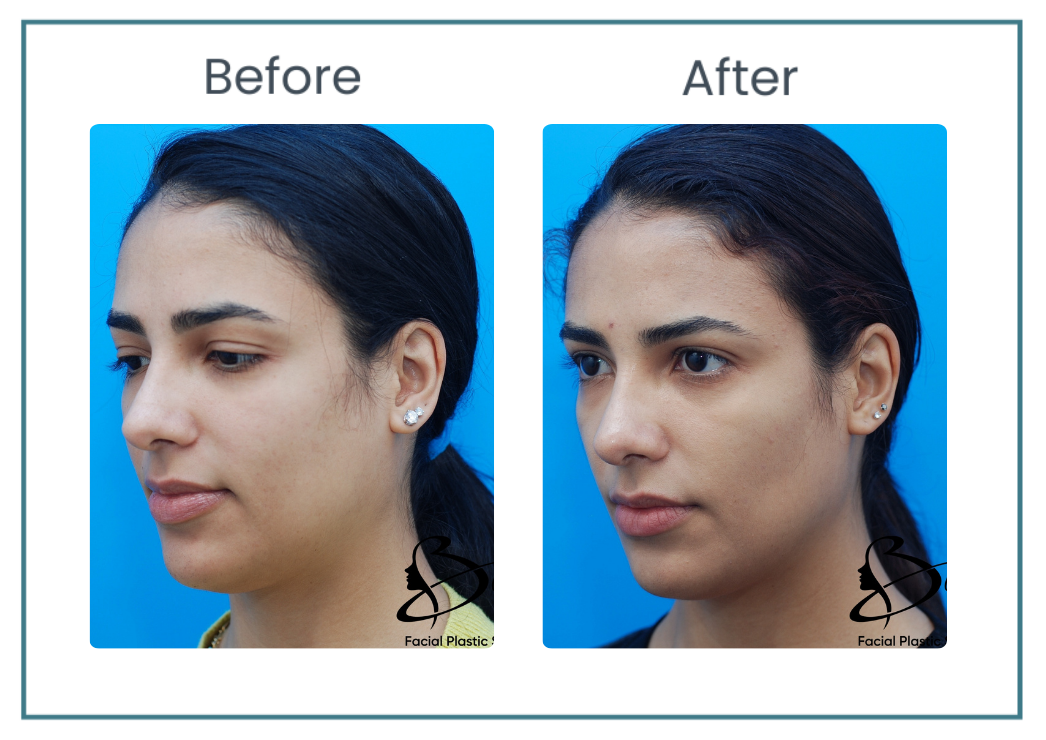
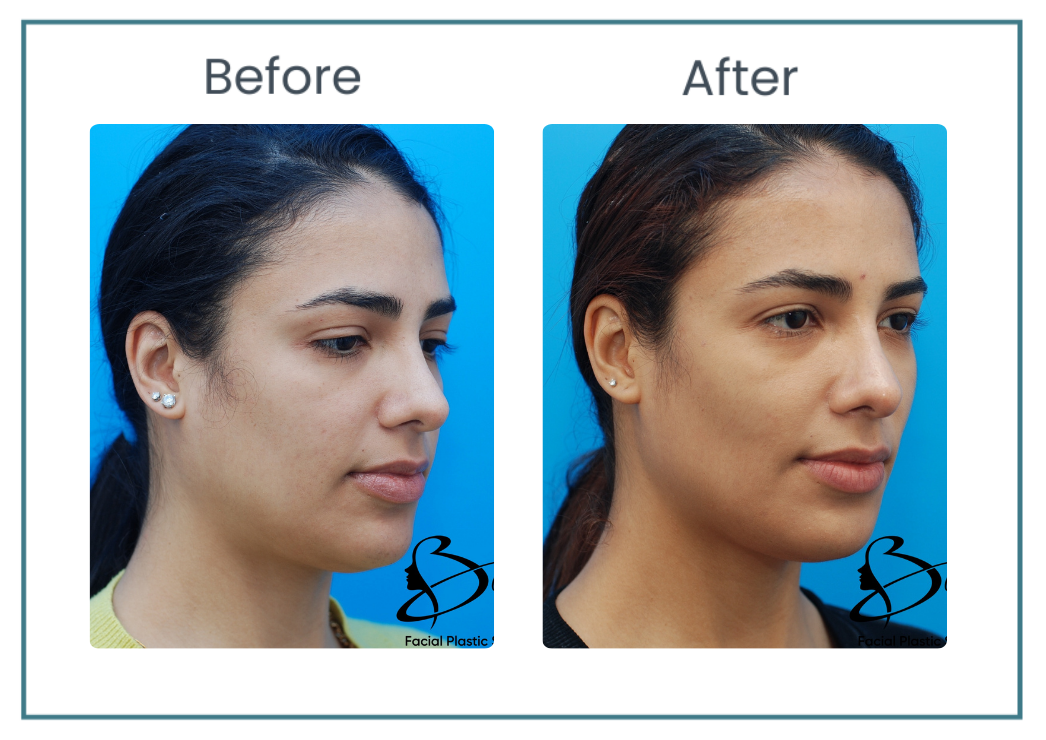
Who Is an Ideal Candidate for Buccal Fat Removal?
During your consultation with Dr. Beaty, he will tell you what kind of results you can expect from this procedure. These procedures are best for patients somewhere between their 20s and 40s with overly full, round, or chubby cheeks. Generally, these would be characteristics of patients who would benefit from this surgery:
- Patients with puffy, overly rounded, chipmunk cheeks, or a square face
- Patients whose mid-face lacks definition and who seek a more tapered face
- Patients who want to accentuate their cheekbones
This isn’t a good procedure for a person with a thin, narrow face, as removing the buccal fat pads can then give the person a gaunt appearance.
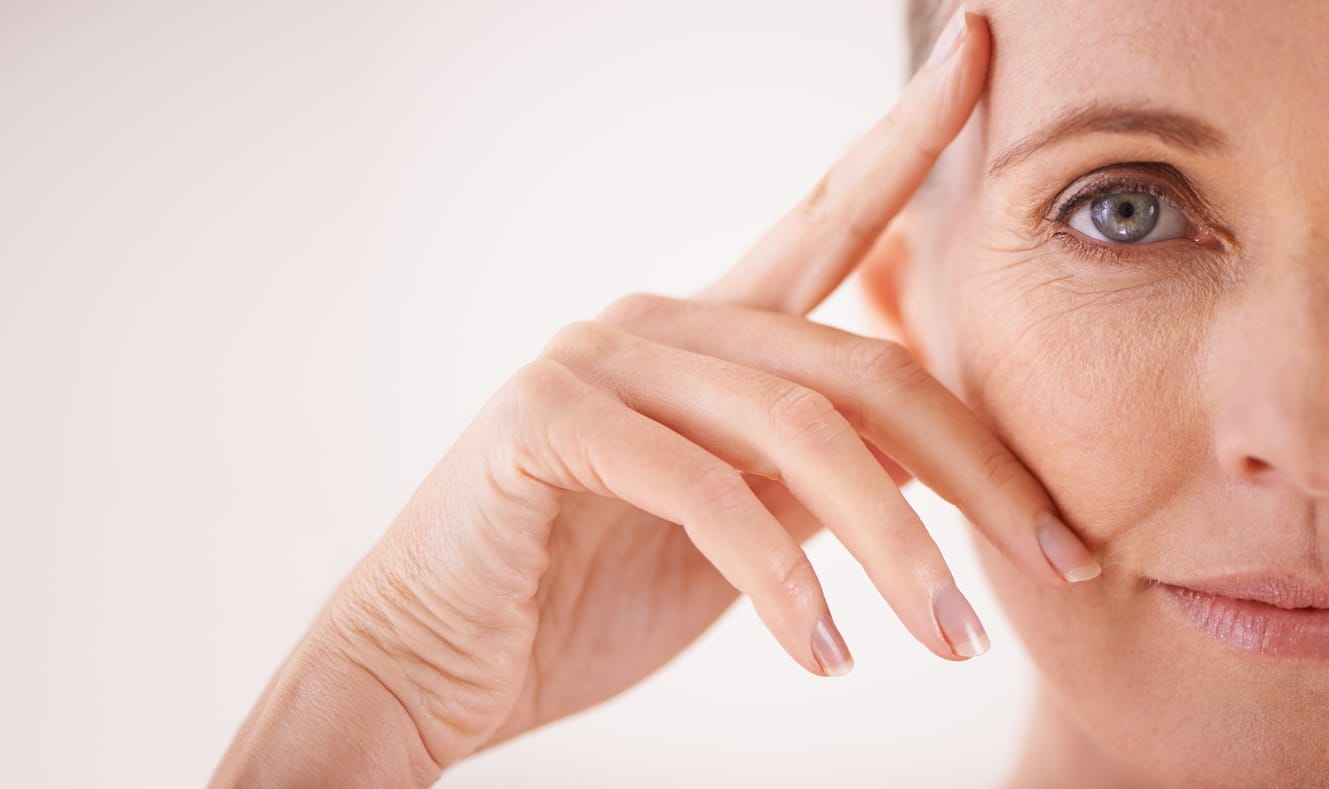
Patient Testimonial
“Thank you all very much for the great care you did with me. It’s really great to deal with competent, professional people that go over and above the normal standard. I also appreciate you making the connections to set me up with a top doctor out here when problems arose. Your future patients are in for a special treat, knowing your skill and commitment. When I’m in Atlanta to visit, I will stop by.”
How Is the Buccal Fat Removal Procedure Performed?
Buccal fat removal surgery is usually done with the patient under local anesthesia with sedation. Dr. Beaty makes an incision on the inside of the mouth on the lower portion of the cheek. He then simply removes the buccal fat pad. The entire fat pad, which stretches up to nearly the temples, is not removed—just the area below the cheekbones is reduced. Because the incisions for both cheeks are made in the mouth, there is no exterior scarring.
What Is Recovery Like After Buccal Fat Removal?
After your surgery, you will need to be on a soft or liquid diet for several days. This can vary with the patient. You’ll also need to use a special rinse to reduce the risk of infection on the incisions inside your mouth. You will swish this around your mouth after every meal. The goal is to prevent any fine particles of food from getting stuck in your incisions. You will have swelling, but if you diligently use ice packs or cold compresses for the first two days, you can dramatically lower your swelling. There is minimal pain during recovery, and your incisions should heal quickly. Patients can typically resume their normal activities the next day.
What Are Potential Risks of Buccal Fat Removal?
Buccal fat removal is considered a safe procedure when performed by a skilled facial plastic surgeon. As with any facial surgery, a thorough understanding of facial anatomy is essential to ensure precise results and avoid disruption to important nerve or vascular structures. Choosing a double board-certified facial plastic surgeon with experience in buccal fat removal can help minimize the chance of complications and support a smooth, successful outcome.

Is It Painful to Have Buccal Fat Removed?
Buccal fat removal is generally well tolerated and not considered a painful procedure. Since the incisions are made inside the mouth, there are no visible scars, and healing tends to be relatively quick. Most patients describe the recovery as mild, with some temporary swelling or soreness rather than true pain. To protect the internal sutures and promote healing, you'll be advised to stick to a soft or liquid diet for a few days. Over-the-counter pain relievers are usually more than enough to manage any discomfort.
Does Buccal Fat Come Back Once Removed?
Once buccal fat is removed, it does not grow back, making the results of buccal fat removal permanent. The buccal fat pads are a distinct and defined fat compartment within the cheeks, and once they are surgically removed, they do not regenerate. However, significant weight gain may cause general facial fullness, which could affect your overall facial appearance. Maintaining a stable weight and healthy lifestyle can help preserve the slimmer, more contoured look achieved through the procedure for years to come.
Are There Any Alternatives to Buccal Fat Removal?
There is no effective way to reduce buccal fat other than surgical removal. While treatments like facial contouring with injectable fillers or skin-tightening technologies can enhance facial definition, they do not remove fat from the buccal fat pad. Surgical removal remains the most effective and direct way to achieve a slimmer, more sculpted look in the mid-to-lower face. For patients seeking long-lasting, noticeable results in this area, buccal fat removal is typically the best solution.
Can I Combine Buccal Fat Removal with Other Procedures?
Buccal fat removal can be a stand-alone procedure or it may be combined with other facial rejuvenation procedures. Many patients choose to pair buccal fat removal with procedures such as a facelift, neck lift, or chin and cheek implants to achieve a more comprehensive and balanced contour. It can also complement fat transfer injections, which restore volume in areas where it’s desired, while buccal fat removal reduces fullness in the mid-cheek area.
Combining procedures may offer the advantage of a single recovery period and more dramatic facial sculpting, particularly when performed by a surgeon who specializes in facial harmony and proportion. During your consultation, Dr. Beaty will recommend a personalized treatment plan tailored to your goals and facial structure.
Additional Frequently Asked Questions About Buccal Fat Removal
Can You Lose Buccal Fat Naturally?
Buccal fat gradually atrophies as people age, similarly to fat in other areas of the face. This can create a gradual reduction in volume of the cheeks over time.
Is Buccal Fat Removal Surgical or Non-surgical?
Buccal fat removal is a surgical procedure. The approach can be from inside the mouth with an incision completely hidden in the inner cheek. Another alternative if a patient is undergoing a facelift is to approach the buccal fat pad from the lateral aspect as part of the facelift operation.
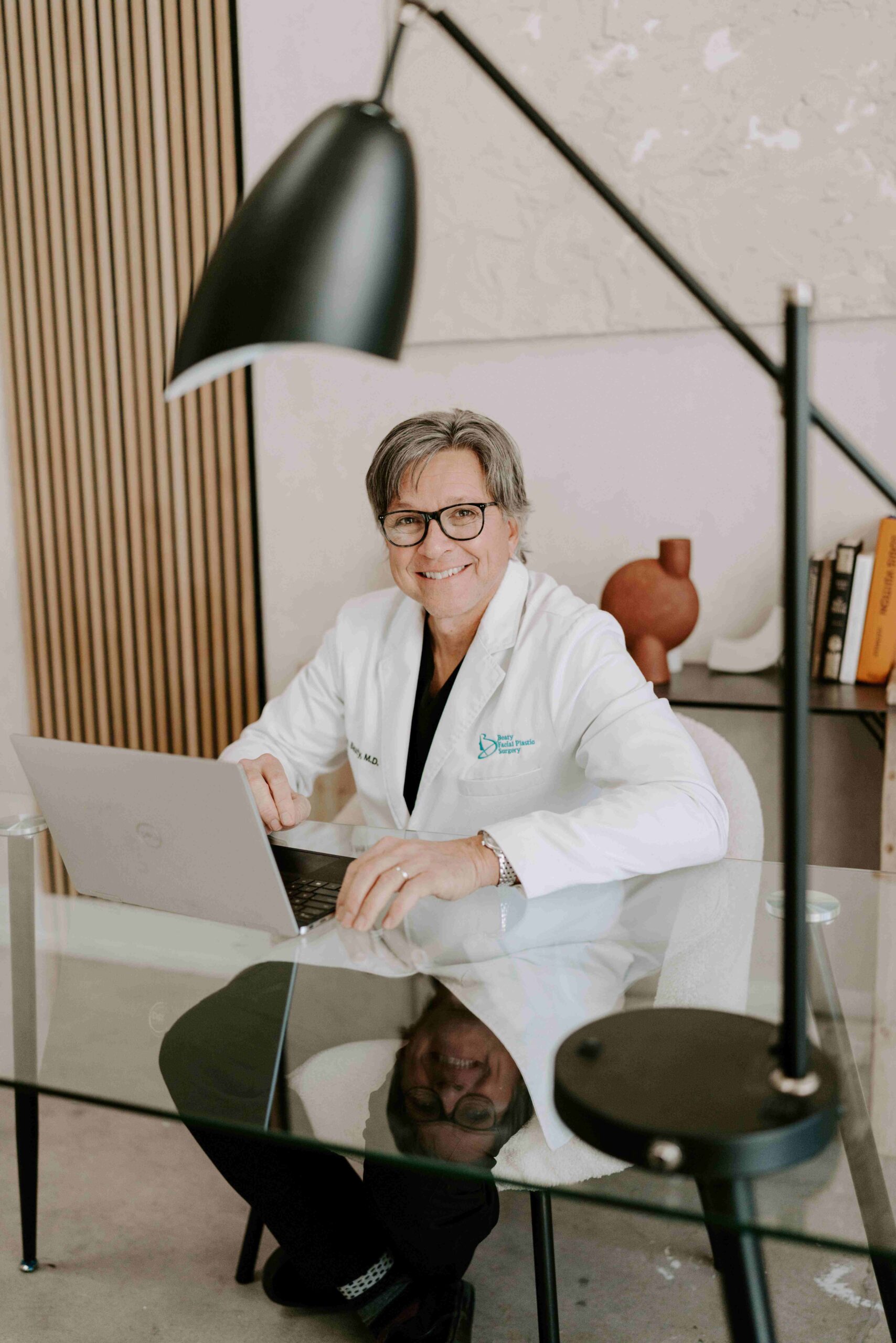
How Should I Sleep After Buccal Fat Removal?
After having Dr. Beaty remove your buccal fat pads, you’ll need to sleep on your back with your head elevated. This isn’t an absolute requirement, as it is with nose surgery or a facelift, for instance, but doing so greatly helps minimize swelling and speed your recovery.
What Should I Avoid After Buccal Fat Removal?
Watching what you eat is important after surgeries like buccal fat removal to protect your incisions. You need to avoid sharp, fine granular foods. Tortilla chips are a no-no, as would be rice or couscous. Smooth foods such as smoothies and mashed potatoes are the way to go for the first few days.
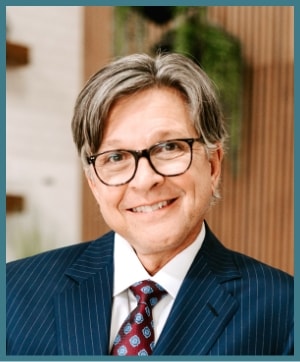
Our team specializes in non-surgical procedures, facial plastic surgery options and more.
If you would like to learn more about our services, please contact us to speak with one of our experts.

